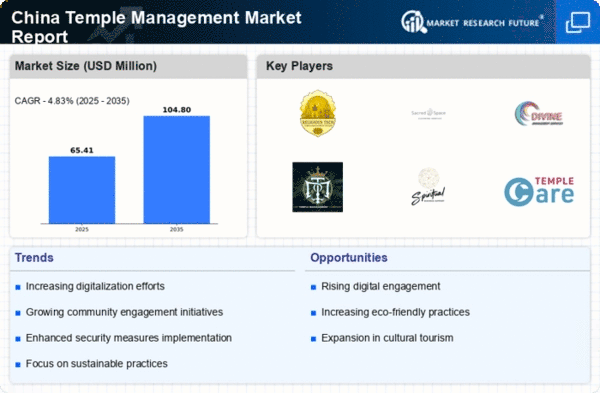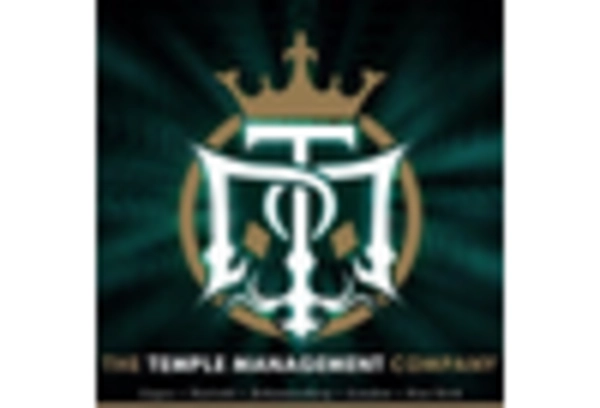Digital Transformation
The temple management market in China is experiencing a notable shift towards digital transformation. With the rise of technology, many temples are adopting digital tools for management and visitor engagement. For instance, the implementation of mobile applications for ticketing and virtual tours has become increasingly common. In 2025, it is estimated that over 60% of major temples will utilize digital platforms to enhance visitor experiences. This trend not only streamlines operations but also attracts a younger demographic, which is crucial for the sustainability of temple activities. As temples embrace digital solutions, the temple management market is likely to see increased efficiency and improved visitor satisfaction.
Increased Tourism Demand
The temple management market in China is significantly influenced by the rising demand for tourism. As international travel resumes, temples are becoming key attractions for tourists seeking cultural and spiritual experiences. In 2025, it is anticipated that temple visits will increase by 25%, driven by both domestic and international travelers. This surge in tourism necessitates enhanced management practices to accommodate larger visitor numbers and improve service quality. Consequently, temple management services are evolving to include comprehensive visitor management systems and enhanced facilities. The growing interest in spiritual tourism is likely to propel the temple management market forward, creating new opportunities for service providers.
Cultural Heritage Preservation
The temple management market in China is increasingly driven by the need to preserve cultural heritage. Temples serve as vital repositories of history, art, and spirituality, attracting millions of visitors annually. In 2023, the Chinese government allocated approximately $500 million to support the restoration and maintenance of historical temples. This funding underscores the importance of temples in cultural tourism, which contributes significantly to local economies. As a result, temple management services are evolving to incorporate advanced preservation techniques, ensuring that these sites remain accessible and relevant. The emphasis on cultural heritage preservation not only enhances the visitor experience but also fosters a sense of community pride, thereby driving growth in the temple management market.
Government Support and Regulation
Government support plays a pivotal role in shaping the temple management market in China. Recent policies aimed at promoting religious tourism have led to increased funding and resources for temple management. In 2025, it is projected that government grants for temple restoration and management will exceed $300 million. These initiatives are designed to enhance the infrastructure and services offered at temples, making them more appealing to both domestic and international tourists. Furthermore, regulatory frameworks are being established to ensure the preservation of cultural and religious sites, which in turn drives demand for professional management services. This supportive environment is likely to foster growth in the temple management market.
Community Involvement and Volunteerism
Community involvement is emerging as a crucial driver in the temple management market in China. Many temples are increasingly relying on local volunteers to assist with various activities, from maintenance to event organization. This trend not only fosters a sense of ownership among community members but also enhances the operational capacity of temples. In 2025, it is expected that volunteer participation in temple activities will rise by 30%, reflecting a growing commitment to community engagement. This collaborative approach not only enriches the temple experience for visitors but also strengthens community ties, thereby positively impacting the temple management market. The integration of community efforts is likely to lead to more sustainable management practices.
















